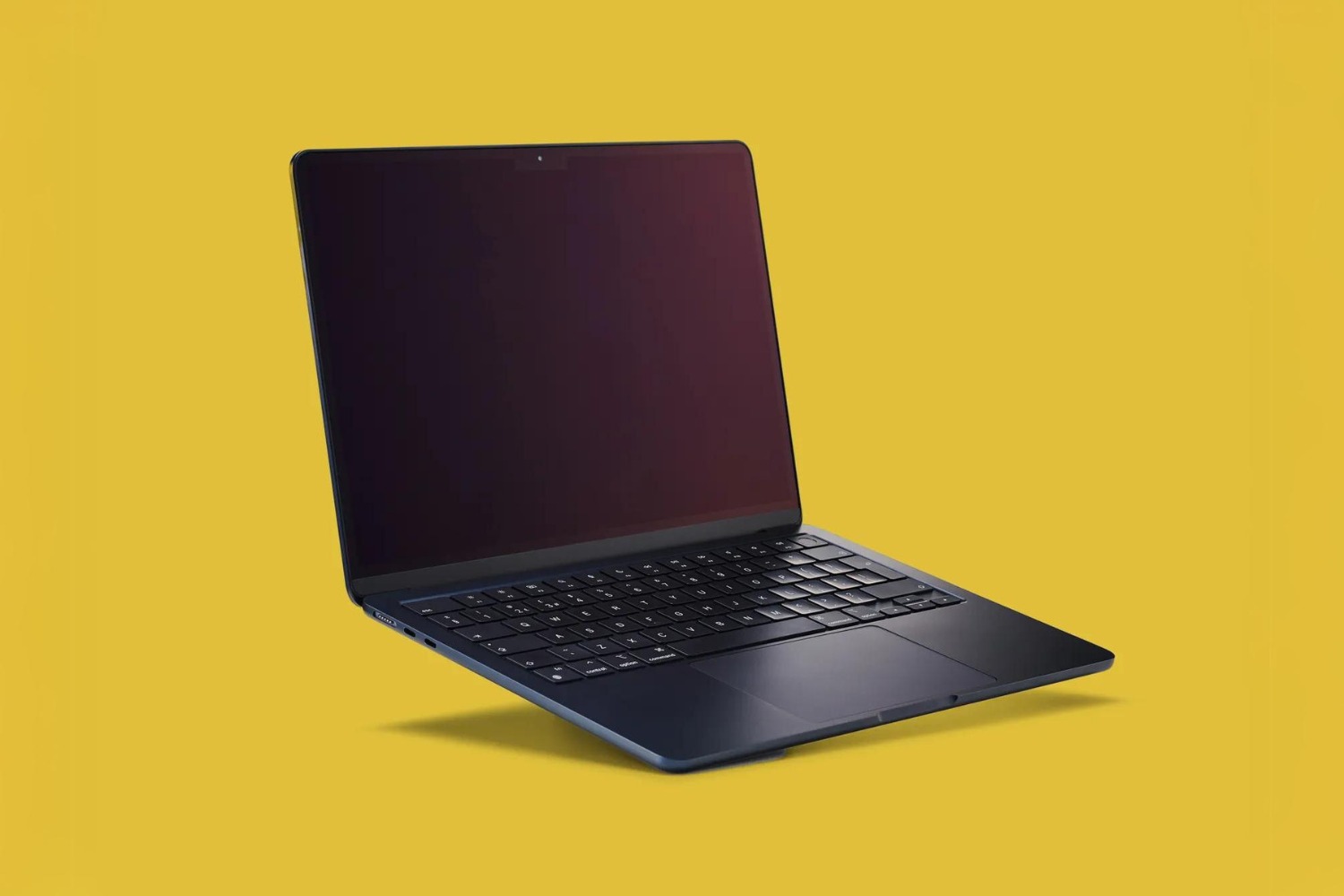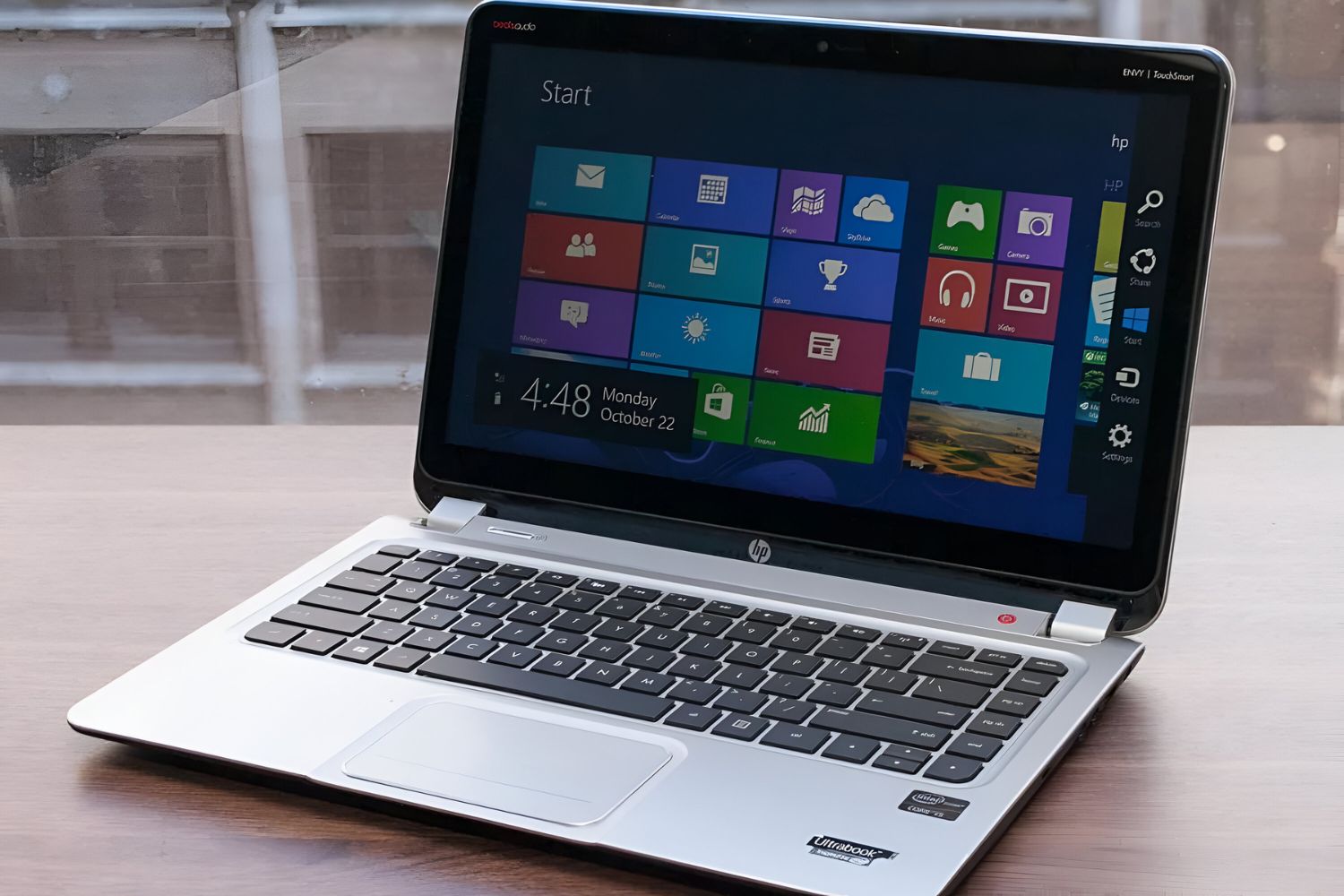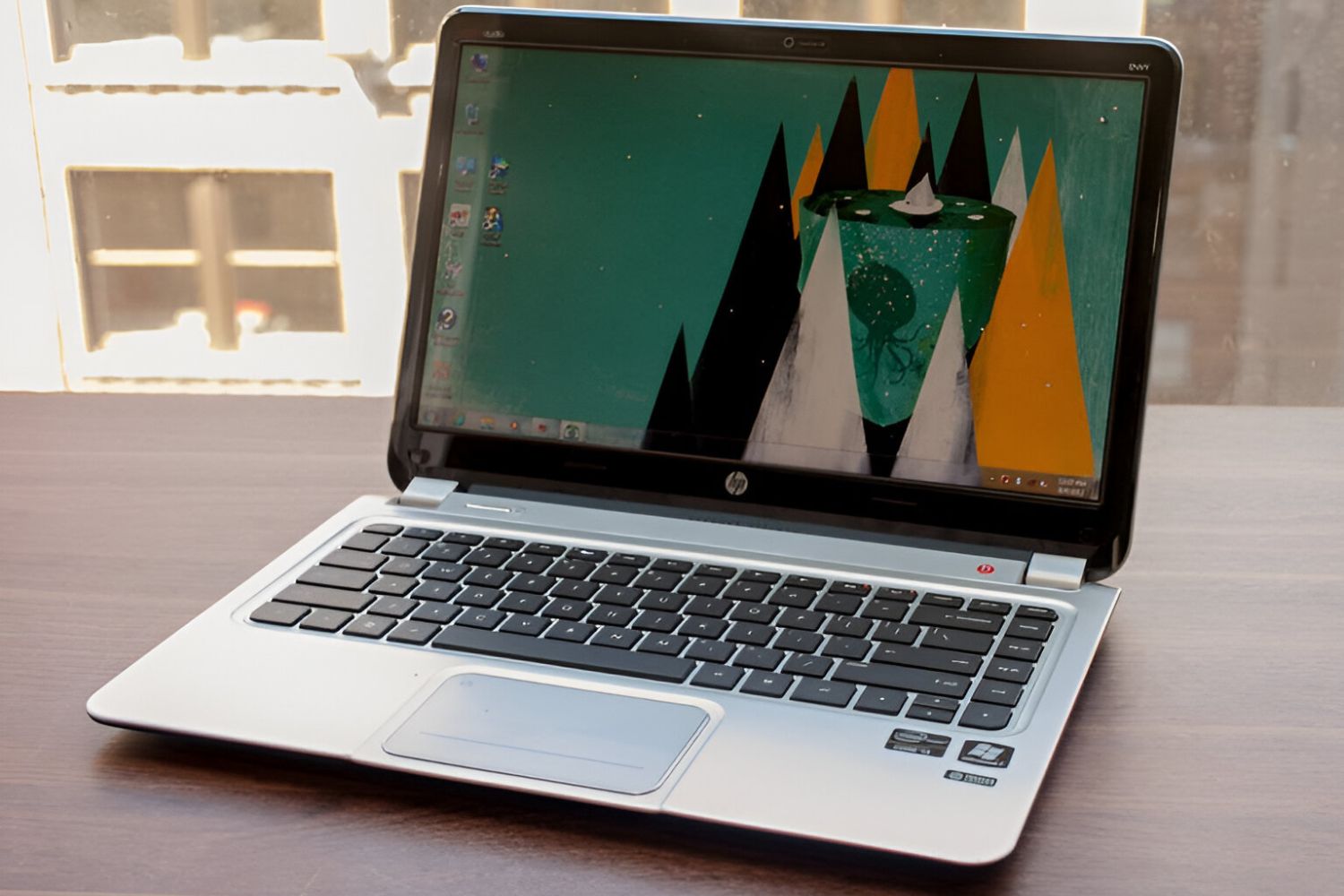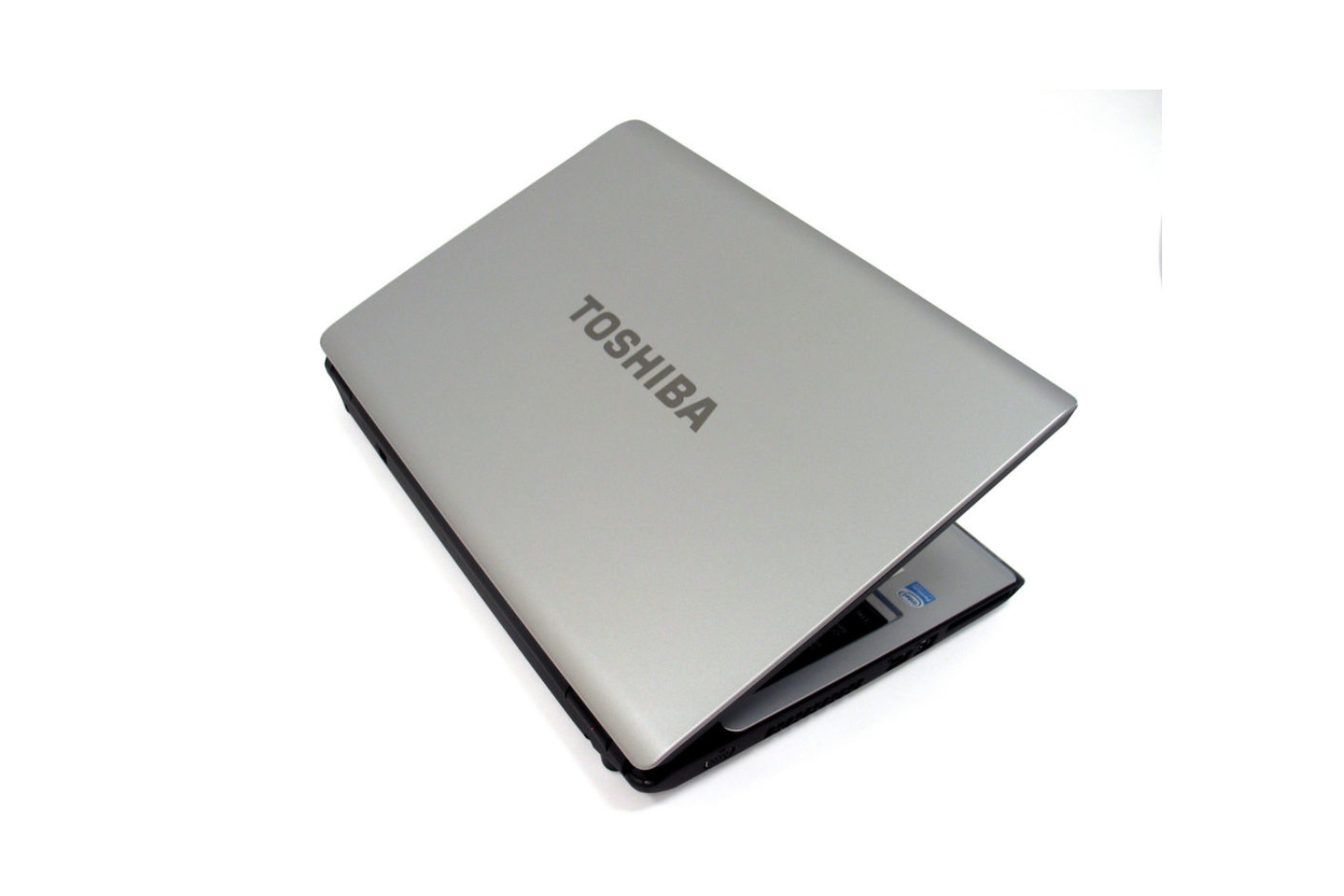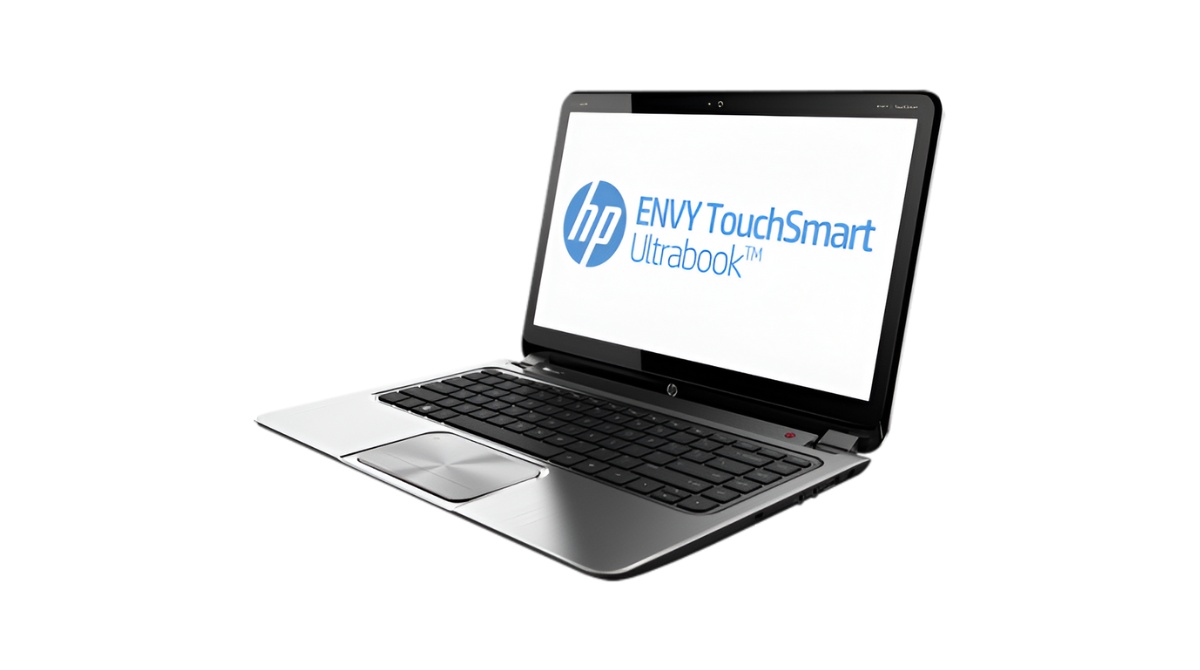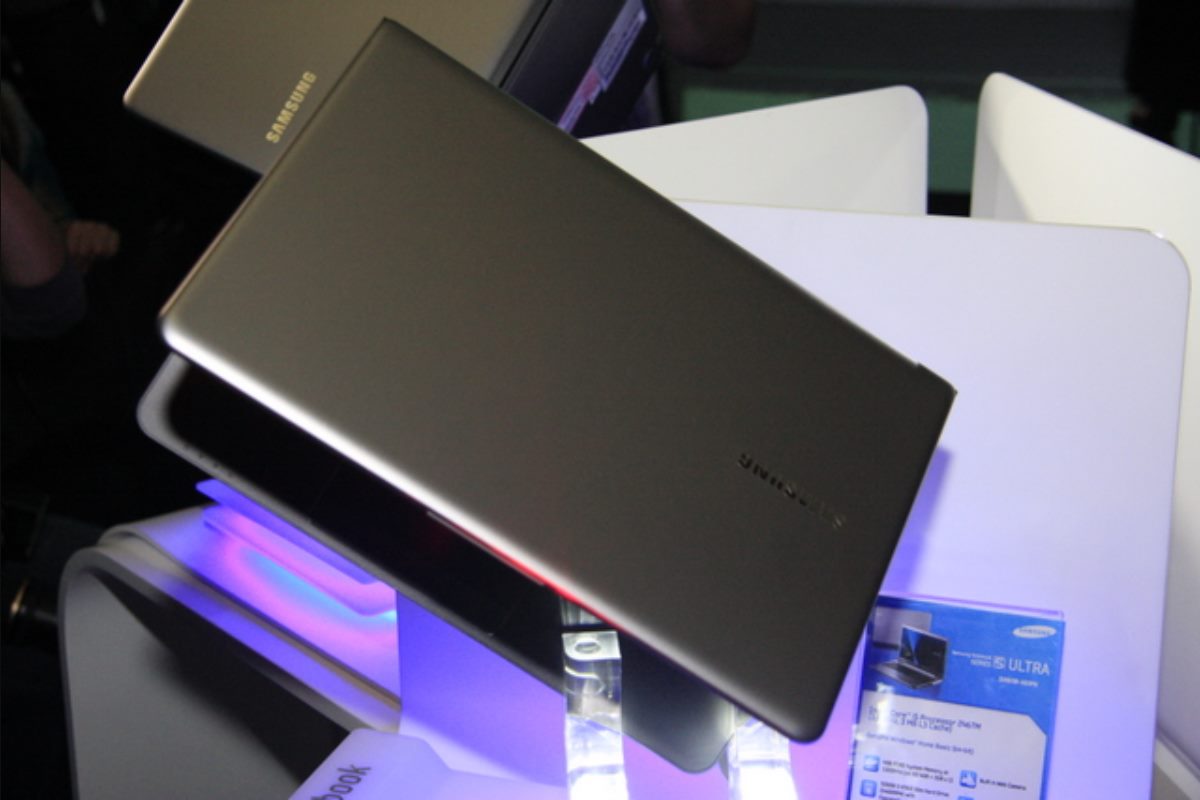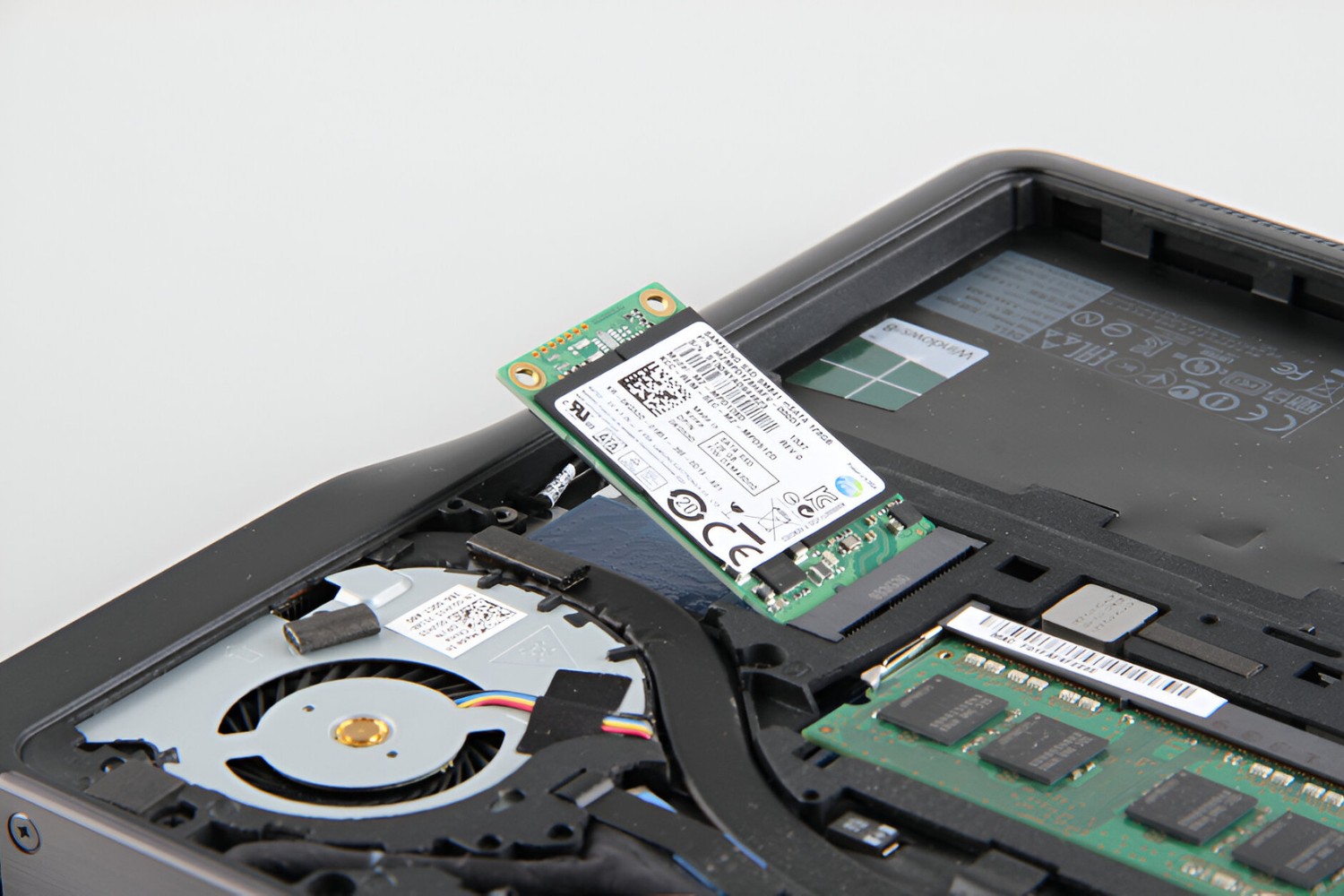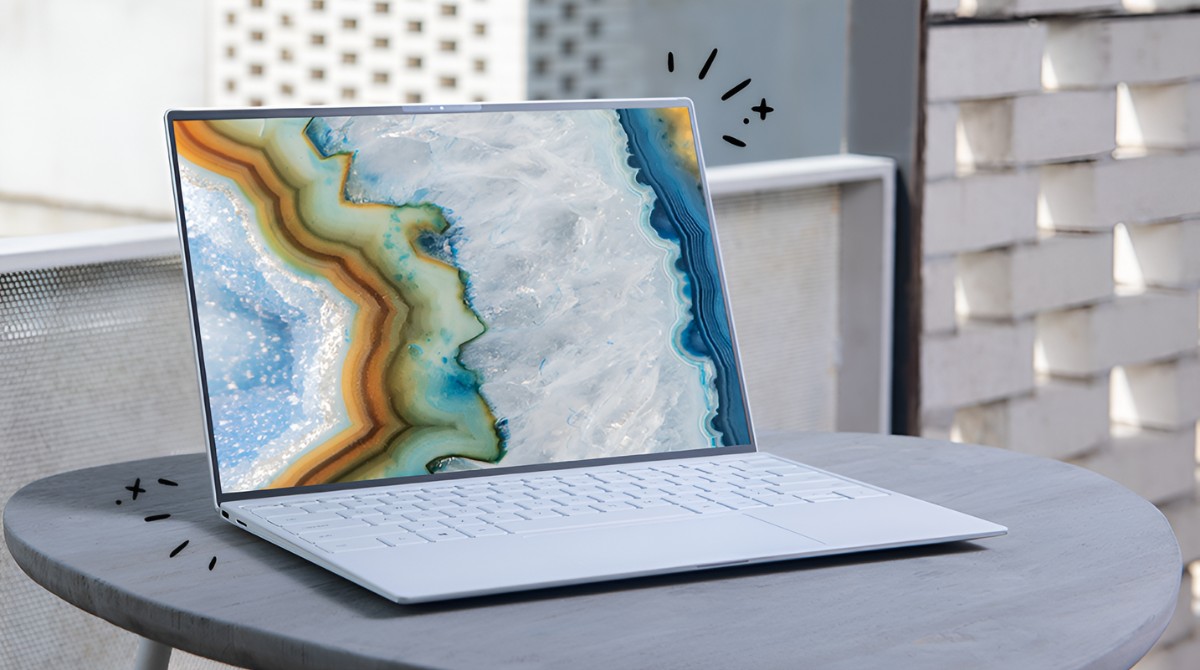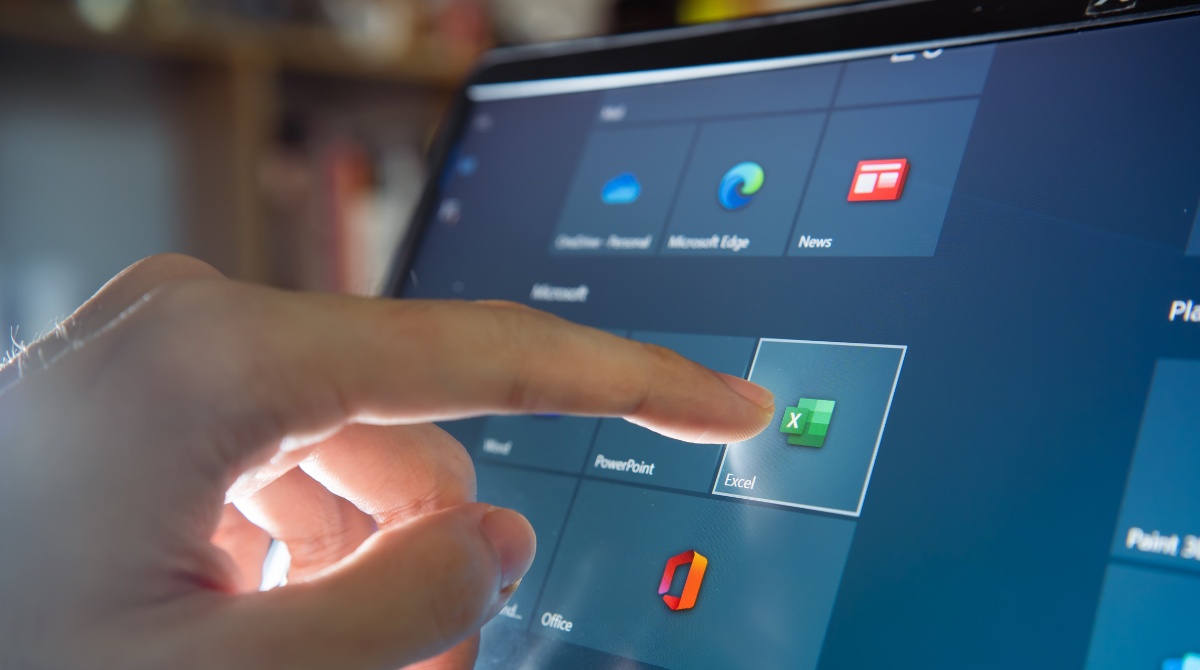Introduction
Welcome to the world of Ultrabook PCs, where power and portability come together to redefine the way we work and play. In an era where technology is constantly evolving, Ultrabook PCs have emerged as the epitome of sleek, lightweight, and high-performance laptops.
Designed to offer the perfect balance between form and function, Ultrabook PCs have become the go-to choice for professionals, students, and tech enthusiasts alike. With their slim profiles, powerful processors, and long-lasting battery life, these devices have revolutionized the way we experience computing.
In this article, we will explore what exactly an Ultrabook PC is, delve into its key features, discuss the benefits of using one, highlight the differences between Ultrabooks and traditional laptops, and provide tips for optimizing performance. Whether you are considering purchasing an Ultrabook PC or simply curious about this cutting-edge technology, this article will provide you with all the essential information you need to know.
So, let’s dive into the world of Ultrabook PCs and discover why they have become the preferred choice for individuals who crave both power and mobility.
What Is an Ultrabook PC?
An Ultrabook PC is a type of laptop that is characterized by its slim and lightweight design, powerful performance, and long battery life. Coined by Intel, the term “Ultrabook” refers to a specific set of specifications that a laptop must meet in order to be classified as an Ultrabook PC.
One of the key defining features of an Ultrabook PC is its thinness. These devices are typically less than an inch thick and weigh less than traditional laptops, making them highly portable and ideal for users who are constantly on the go.
Another important aspect of an Ultrabook PC is its performance capabilities. These devices are equipped with powerful processors, often from Intel’s Core series, which enable smooth multitasking and efficient handling of demanding tasks such as video editing or gaming.
Besides their sleek design and impressive performance, Ultrabook PCs are known for their long battery life. Thanks to advancements in battery technology and efficient power management, these devices can provide all-day battery life, allowing users to work or entertain themselves without worrying about running out of power.
In addition to the physical characteristics, Ultrabook PCs also come with a range of features and technologies that enhance user experience. These may include high-resolution displays, solid-state drives (SSDs) for faster storage, backlit keyboards, and touchscreens.
Overall, an Ultrabook PC is a premium laptop that combines sleek design, powerful performance, and long battery life. It offers the perfect balance between portability and functionality, making it an attractive choice for professionals, students, and anyone who values both style and substance in their computing devices.
Key Features of an Ultrabook PC
Ultrabook PCs are packed with a host of features that set them apart from traditional laptops. These features not only enhance performance but also contribute to the overall user experience. Let’s take a closer look at some of the key features that make Ultrabook PCs a compelling choice:
- Slim and Lightweight Design: One of the most notable features of an Ultrabook PC is its slim and lightweight design. These devices are designed to be ultra-portable, making them easy to carry and ideal for travel or working on the go.
- Powerful Performance: Ultrabook PCs are equipped with high-performance processors, often from Intel’s Core series, which provide fast and responsive computing power. This allows users to effortlessly run resource-intensive applications, multitask efficiently, and enjoy smooth performance.
- Long Battery Life: With advancements in battery technology and power efficiency, Ultrabook PCs are known for their exceptional battery life. These devices can provide all-day battery power, allowing users to work or play without constantly worrying about finding a power outlet.
- High-Quality Displays: Many Ultrabook PCs feature high-resolution displays, providing crisp visuals and vibrant colors. Whether you’re editing photos or enjoying multimedia content, the display quality of an Ultrabook PC enhances the overall viewing experience.
- Fast Storage with SSDs: Ultrabook PCs often come equipped with solid-state drives (SSDs) instead of traditional hard drives. SSDs offer faster read and write speeds, resulting in quicker boot times, faster file transfers, and improved overall system responsiveness.
- Connectivity Options: Ultrabook PCs typically offer a wide range of connectivity options, including USB ports, HDMI ports, and Thunderbolt ports. This allows users to connect external devices, such as monitors or storage devices, and enables seamless data transfer.
- Enhanced Security: Many Ultrabook PCs come with built-in security features, such as fingerprint scanners or facial recognition technology, to ensure secure access to the device and protect sensitive information.
- Backlit Keyboards: Some Ultrabook PCs feature backlit keyboards, allowing users to comfortably type in low-light environments. This adds convenience and improves productivity, especially for those who frequently work in dimly lit areas.
- Touchscreen Capability: Many Ultrabook PCs have touchscreens, enabling intuitive interaction with the device through touch gestures and opening up new possibilities for creative tasks or navigating user interfaces.
These are just a few examples of the key features that set Ultrabook PCs apart. With their sleek design, powerful performance, and a plethora of innovative features, Ultrabook PCs offer a premium computing experience that caters to the needs of modern users.
Benefits of Using an Ultrabook PC
Ultrabook PCs offer numerous advantages over traditional laptops, making them an attractive choice for a wide range of users. Let’s explore some of the key benefits of using an Ultrabook PC:
- Portability: The slim and lightweight design of Ultrabook PCs makes them highly portable. Whether you’re a frequent traveler, a student who needs to carry their laptop between classes, or a professional who often works on the go, an Ultrabook PC offers the convenience of easily slipping it into a bag and taking it anywhere.
- Powerful Performance: Despite their compact size, Ultrabook PCs are equipped with high-performance processors and sufficient RAM, allowing for smooth multitasking and efficient handling of demanding tasks. Whether you need to run resource-intensive applications, edit multimedia content, or play the latest games, an Ultrabook PC can handle it with ease.
- All-Day Battery Life: Ultrabook PCs are designed to maximize battery efficiency. With improved power management and energy-saving technologies, these devices can deliver exceptional battery life, allowing you to work or entertain yourself without constantly worrying about running out of power.
- Fast Storage: Ultrabook PCs often feature solid-state drives (SSDs) that offer fast boot times, quick access to files, and improved overall system responsiveness. This means you can start up your laptop in seconds, access your files quickly, and enjoy a snappy computing experience.
- High-Quality Displays: Many Ultrabook PCs boast high-resolution displays that provide sharp and vibrant visuals. Whether you’re working on graphic design projects, watching movies, or simply browsing the web, the stunning display of an Ultrabook PC enhances your overall viewing experience.
- Improved Connectivity: Ultrabook PCs come with a variety of connectivity options, including USB ports, HDMI ports, and wireless connectivity options. This allows you to easily connect peripheral devices, external displays, and transfer data seamlessly.
- Enhanced Security: Ultrabook PCs often include built-in security features, such as fingerprint scanners or facial recognition technology, for secure and convenient access to your device. This helps protect your sensitive data and ensures that only authorized users can access the device.
- Eco-Friendly and Energy Efficient: Ultrabook PCs are designed to be energy-efficient, reducing power consumption and minimizing environmental impact. With eco-friendly features like low power modes and recyclable materials, you can enjoy your Ultrabook PC while minimizing your carbon footprint.
- Stylish Design: Ultrabook PCs are known for their sleek and elegant designs. With their slim profiles, sleek finishes, and attention to detail, these devices exude sophistication and make a style statement.
From their portability and powerful performance to long battery life and stylish design, Ultrabook PCs offer a range of benefits that cater to the needs of modern users. Whether you’re a professional, a student, or simply someone who values performance and portability, an Ultrabook PC can provide you with a versatile and enjoyable computing experience.
Differences Between Ultrabooks and Traditional Laptops
While Ultrabooks and traditional laptops serve the same purpose of providing portable computing solutions, there are several key differences that set them apart. Understanding these differences can help you make an informed decision when choosing between the two. Let’s explore the main distinctions:
- Design: Ultrabooks are known for their slim and lightweight designs. They are typically thinner and lighter than traditional laptops, making them easier to carry and more portable. Traditional laptops, on the other hand, may have bulkier frames and a heavier build.
- Performance: Ultrabooks generally offer high-performance capabilities. They often come equipped with powerful processors, ample RAM, and efficient storage options, allowing for smooth multitasking and handling of resource-intensive tasks. Traditional laptops may vary in terms of performance, with some models offering similar power while others may lag behind.
- Battery Life: Ultrabooks are designed with energy efficiency in mind, delivering longer battery life compared to traditional laptops. This means you can use an Ultrabook for extended periods without worrying about needing to plug it in. Traditional laptops may have shorter battery life due to various factors, such as larger screens or less power-efficient components.
- Storage: Ultrabooks often come with solid-state drives (SSDs) that provide fast storage, resulting in quicker boot times and file access. On the other hand, traditional laptops may come with traditional hard drives or a combination of HDD and SSD options, which can affect the overall speed and performance.
- Display: Ultrabooks frequently feature high-resolution displays that offer sharp and vibrant visuals. Their screens may also have touch capabilities. Traditional laptops, while some models also offer high-resolution displays, often do not prioritize touch capabilities and may have lower resolution screens in comparison.
- Connectivity and Ports: Ultrabooks tend to have a smaller number of ports due to their slim profiles, often featuring a limited amount of USB ports, an HDMI port, and sometimes Thunderbolt ports. Traditional laptops, with their larger frames, typically offer a wider variety of ports for connecting external devices.
- Price: Generally, Ultrabooks tend to be more expensive than traditional laptops due to their premium build, high-performance components, and innovative features. Traditional laptops, being available in a wider range of models and configurations, can offer more affordable options.
These differences demonstrate how Ultrabooks differentiate themselves from traditional laptops, emphasizing portability, performance, and energy efficiency. When choosing between the two, consider your specific needs, budget, and priorities to determine which type of laptop suits you best.
Choosing the Right Ultrabook PC for Your Needs
When it comes to selecting the right Ultrabook PC, several factors should be taken into consideration to ensure that you find a device that perfectly suits your needs and preferences. Here are some key aspects to consider:
- Performance: Determine what tasks you’ll be using the Ultrabook PC for. If you require high-performance capabilities for tasks like video editing or gaming, consider models with powerful processors and ample RAM. If your needs are more focused on productivity and web browsing, a model with a mid-range processor may suffice.
- Screen Size and Resolution: Consider the screen size that will work best for you. Ultrabook PCs can have screen sizes ranging from 12 to 15 inches. Opt for a size that balances portability and the ability to comfortably view content. Additionally, consider the resolution of the display, opting for higher resolutions if you need sharper visuals for tasks like editing photos or videos.
- Battery Life: Evaluate your typical usage patterns and choose an Ultrabook PC with a battery life that matches your needs. If you are frequently on the move or work in places without easy access to power outlets, prioritize models with longer battery life to ensure uninterrupted usage throughout the day.
- Storage Options: Decide on the amount of storage space you require. Ultrabook PCs often come with solid-state drives (SSDs) that offer fast boot times and efficient storage. Consider the storage capacity offered by different models and determine whether external storage options like cloud storage or external hard drives would be necessary for your needs.
- Connectivity: Think about the peripheral devices you frequently use and ensure that the Ultrabook PC has the necessary connectivity options. Consider the number and type of USB ports, the presence of an HDMI port for external display connections, and other ports like Thunderbolt or SD card slots based on your specific requirements.
- Design and Build Quality: Take into account the overall design aesthetics and build quality of the Ultrabook PC. Look for a design that appeals to you and a build that feels durable and sturdy. Pay attention to details like keyboard feel, touchpad responsiveness, and overall ergonomics.
- Operating System: Consider the operating system that the Ultrabook PC runs on. Choose between Windows, macOS, or other available options based on your familiarity, software requirements, and personal preference.
- Budget: Set a budget range for your Ultrabook PC purchase and explore models within that range. Balancing the desired features and performance with your budget will help you find the right Ultrabook PC that meets your needs without breaking the bank.
By carefully evaluating these factors and understanding your specific requirements, you can make an informed decision when choosing the right Ultrabook PC for your needs. Take the time to research and compare different models, read reviews, and consider visiting physical stores to test out the devices before making a final decision.
Tips for Optimizing Your Ultrabook PC’s Performance
To maximize the performance and get the most out of your Ultrabook PC, implementing some optimization strategies can make a noticeable difference. Here are some tips to help you optimize your Ultrabook PC’s performance:
- Keep Your System Updated: Regularly update your operating system, drivers, and software to ensure you have the latest security patches and performance enhancements.
- Manage Startup Programs: Disable unnecessary startup programs to reduce the time it takes for your Ultrabook PC to boot up and improve overall system responsiveness.
- Optimize Power Settings: Adjust your power settings to strike a balance between performance and power consumption. Choose power plans that suit your usage patterns and preferences.
- Remove Bloatware: Uninstall any pre-installed software or applications that you don’t need. This frees up system resources and reduces clutter on your Ultrabook PC.
- Manage Background Processes: Use the Task Manager or similar tools to identify and close any unnecessary background processes or applications that might be consuming system resources.
- Utilize System Maintenance Tools: Take advantage of built-in system maintenance tools, such as disk cleanup and disk defragmentation, to optimize the performance of your Ultrabook PC.
- Keep Your System Cool: Ensure proper ventilation to prevent overheating. Overheating can lead to performance issues, so use a cooling pad if necessary and clean the vents regularly to remove dust buildup.
- Remove Unused Files and Programs: Regularly clean up your hard drive by deleting unused files, uninstalling unnecessary programs, and running disk cleanup to free up storage space.
- Use Cloud Storage for Files: Consider utilizing cloud storage services to store and access large files, reducing the burden on your Ultrabook PC’s local storage.
- Enable Hardware Acceleration: Enable hardware acceleration in applications such as web browsers to offload processing tasks to your Ultrabook PC’s hardware, enhancing performance.
- Scan for Malware: Run regular scans using reputable antivirus software to ensure your Ultrabook PC is free from malware that can impact performance and security.
- Upgrade Hardware: If your Ultrabook PC isn’t meeting your performance needs, consider upgrading components such as RAM or storage to enhance its capabilities.
Implementing these optimization tips can help keep your Ultrabook PC running smoothly, ensuring optimal performance and a seamless user experience. Remember to find the right balance between performance and power efficiency based on your specific needs and preferences.
Frequently Asked Questions about Ultrabook PCs
As Ultrabook PCs continue to gain popularity, you may have some questions regarding their features, performance, and suitability for your needs. Here are some frequently asked questions about Ultrabook PCs:
- What is the difference between an Ultrabook PC and a regular laptop?
Ultrabook PCs are a specific category of laptops that adhere to certain specifications set by Intel, emphasizing a thin and lightweight design, high performance, and long battery life. Regular laptops, on the other hand, encompass a broader range of devices with varying specifications and designs. - Are Ultrabook PCs suitable for gaming?
While Ultrabook PCs can handle some games, they are not typically designed for intense gaming due to their compact form factor. Gaming-focused laptops often have dedicated graphics cards and enhanced cooling systems, which Ultrabook PCs may lack. However, there are Ultrabook PCs with decent gaming capabilities available on the market. - Can Ultrabook PCs run resource-intensive applications?
Yes, Ultrabook PCs are designed to handle demanding tasks like photo and video editing, software development, and content creation. With powerful processors, sufficient RAM, and fast storage options, they can deliver smooth performance for most resource-intensive applications. - Do Ultrabook PCs support touchscreens?
Yes, many Ultrabook PCs come with touchscreens, especially those with Windows operating systems. Touchscreens offer intuitive interaction, allowing users to navigate through applications and perform gestures for enhanced productivity and convenience. - Can I upgrade the components of an Ultrabook PC?
Upgradability varies depending on the specific model of Ultrabook PC. While some Ultrabook PCs have limited upgrade options due to their thin and compact designs, others may allow for RAM or storage upgrades. It is important to research the specific model’s upgrade options before making a purchase. - Are Ultrabook PCs compatible with external devices?
Yes, Ultrabook PCs come with a variety of connectivity options such as USB ports, HDMI ports, and Thunderbolt ports. These allow you to connect external devices like monitors, keyboards, mice, and storage devices, making Ultrabook PCs versatile and adaptable to your specific needs. - What is the average lifespan of an Ultrabook PC?
The average lifespan of an Ultrabook PC can vary depending on factors such as usage patterns, maintenance, and advancements in technology. With proper care and regular updates, an Ultrabook PC can typically last for 3 to 5 years or more before needing an upgrade. - Are Ultrabook PCs suitable for students?
Yes, Ultrabook PCs are highly suitable for students due to their portability, long battery life, and powerful performance. They provide the versatility to handle tasks such as note-taking, research, multimedia projects, and even some light gaming. - Are Ultrabook PCs suitable for professionals?
Ultrabook PCs are well-suited for professionals who prioritize portability and performance. Their lightweight design, long battery life, powerful processors, and ample storage make them ideal for tasks such as running productivity software, multitasking, attending meetings, and traveling for work. - Are Ultrabook PCs more expensive than regular laptops?
Ultrabook PCs, being premium devices with advanced features and sleek designs, often come at a higher price point compared to entry-level or mid-range traditional laptops. However, there are Ultrabook models available at varying price ranges, allowing you to choose one that fits your budget.
These frequently asked questions cover some of the common queries regarding Ultrabook PCs. Understanding these aspects will help you make an informed decision and ensure that an Ultrabook PC meets your specific needs and requirements.
Conclusion
Ultrabook PCs have undoubtedly revolutionized the laptop landscape, combining sleek design, powerful performance, and impressive portability into a single device. With their slim and lightweight profiles, Ultrabook PCs have become the go-to choice for individuals seeking a seamless and efficient computing experience.
In this article, we explored what defines an Ultrabook PC and highlighted its key features, such as the slim design, powerful performance, and long battery life. We also discussed the benefits of using an Ultrabook PC, including portability, high-quality displays, and enhanced security features.
Additionally, we delved into the differences between Ultrabooks and traditional laptops, emphasizing how Ultrabook PCs stand out with their design aesthetics, performance capabilities, and energy efficiency. We also provided tips for selecting the right Ultrabook PC based on factors like performance requirements, screen size, battery life, and budget constraints.
Furthermore, we discussed optimization techniques to enhance the performance of your Ultrabook PC, including keeping the system updated, managing startup programs, optimizing power settings, and removing unnecessary files and software. We also addressed frequently asked questions, addressing concerns related to gaming, compatibility with external devices, upgradability, and more.
In conclusion, Ultrabook PCs offer a compelling combination of style, performance, and portability that makes them an attractive choice for a wide range of users. Whether you’re a student, a professional, or a tech enthusiast, an Ultrabook PC can provide you with the power and convenience you need to excel in your tasks and enjoy an exceptional computing experience. So, consider your specific needs, explore the available options, and find the perfect Ultrabook PC that caters to your requirements.







